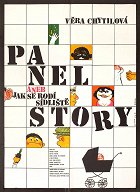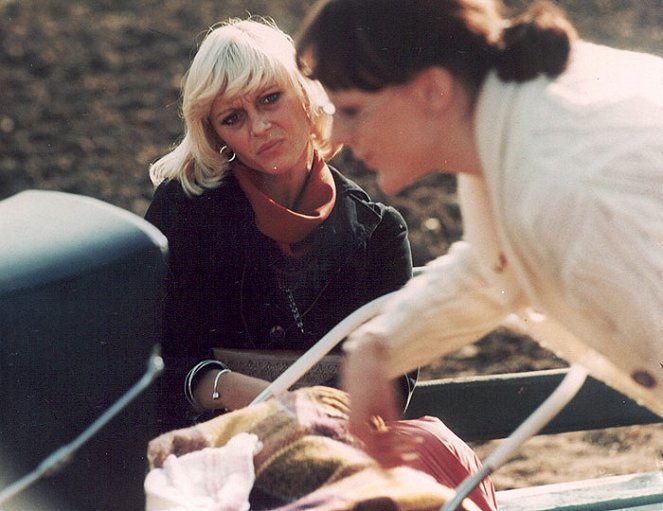Directed by:
Věra ChytilováCinematography:
Jaromír ŠofrComposer:
Jiří ŠustCast:
Antonín Vaňha, Lukáš Bech, Eva Kačírková, Jiří Kodet, Alena Rýcová, Michal Nesvadba, Oldřich Navrátil, Miluše Šplechtová, Bronislav Poloczek (more)Plots(1)
A new housing estate is being built on the edge of Prague. Although the building work has not yet been finished, people are already moving into the flats. Provisional roads made from pieces of boarding snake their way through the blocks of concrete, droning construction vehicles and sludge pits, the residents balancing on them when doing their errands. Day-to-day life begins after a fashion anyway though, albeit in a makeshift way. In the middle of this confusion, a taxi driver is looking for directions but no-one seems to know the street he's looking for. Grandfather Honda is sitting in the back of the taxi and wants to visit his children and grandchildren in the new district. The old man is from a small village and finds it difficult to take in everything he finds here. His path is constantly crossed by a little boy, Pepik, who seems to thrive on the whole chaos. He actually enjoys getting involved in complicated situations and then making them even more complicated. Pepik and Grandpa Honda represent two opposing poles in the tangle of interpersonal relations that unfold before the backdrop of the half-finished construction site. (Berlinale)
(more)Reviews (4)
Good old Věra. No one could have handled this topic more aptly than her, because the collective stream in the park among the mud and apartment blocks is something so absurd and yet so familiar to most Czechs. Personally, I see Story from a Housing Estate as a free generational continuation of the film Naše bláznivá rodina by Valášek and Kachyňa, who portrayed the contemporary Czech character in the heyday of the sixties completely outside of all those intellectual currents that never really bothered the larger population anyway. A typical Czech family will always be more interested in whether mom has lost her glasses somewhere, whether the older daughter supervised the younger one while she was going on a date, and if this household lived in the center of Prague at the time, it was a pity that in the next decade, it had to move these interests to nice panel housing estates. Schulhoff turned the subject into a comedy, and Chytilová made it into an unadorned satire. And she and Kačírková even added a neo-feminist view of interpersonal relations. So cheers to the formica core and maternity leave!
()
Věra Chytilová films this in a way as if she wanted to make up for everything after a 20-year fast, and fills the screen with a multitude of characters, motifs, and plots. If there were only half as many, it could work in principle, but like this, the film just hyperactively jumps from scene to scene, and the viewer gets the impression that the director and cameraman must have been on methamphetamine. I don't get a good feeling from the nervous camera or the emotionally overexposed performances of the film's characters. I would like to say that the film authentically captures the atmosphere of a large housing estate in the 70s, but that would not be true. The film is somehow hysterical, and it should have been to be toned down. I understand that when it came out it must have seemed like a revelation to the audience because no one was prepared for the level of criticism that Chytilová worked with. That's where her strength lies. She was not afraid to open topics that everyone else was silent about, and we must realize that she was filming shortly after important historical Czech trials. The social atmosphere was certainly not inclined toward open artistic expression. Overall impression: 40%.
()
Excellent satire, in which, in addition to the image of a muddy community and normalizing marasmus, the typically "Chytilová" elements, particularly the mundane nature of relationships between the opposite sexes, also prevail. The authentic elements in combination with the distinctly stylized parody (Kodet's Kodeš) seem a bit unbalanced, as if Chytilová sometimes did not consider the panel apartment reality to be telling enough and felt the need to emphasize it with comedic elements. However, from the point of view of the interpretation of nascent normalization, this is an absolutely essential film.
()
Don’t expect a comedy with a plot of any kind. It works well as period documentary sketches – the director did a good job of capturing it and the movie looks really quite original. But from the point of view of the comedy genre, this is a real loser. I give it 2* for original approach and realistic depiction of life back in the day.
()


Ads